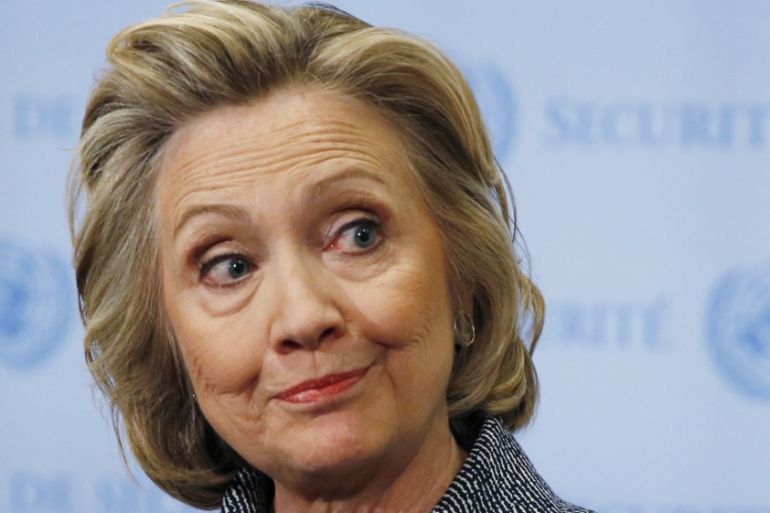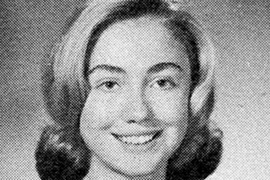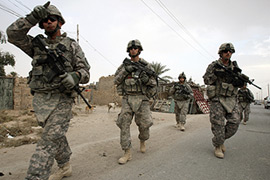Profile: Hillary Clinton
Former New York Senator and first lady has joined the race for the White House for the second time.

Hillary Clinton is again running for arguably the most influential position in international politics, the US presidency.
She lost the competition for the Democratic ticket to the incumbent Barack Obama by a thin margin in her previous attempt in 2008.
No woman has been a major party’s presidential nominee or been elected president of the US.
Though lauded by her fans and supporters, Clinton is not without criticism.
She has already come under strong criticism for her handling of the attack on a US diplomatic compound in Benghazi, Libya, during her 2009-2013 tenure as secretary of state.
US ambassador Christopher Stevens and three others were killed in the attack on September 11, 2012.
The report issued by an independent panel about the Benghazi attack found “systematic failures and leadership and management deficiencies” at the State Department. Clinton stepped down from her tenure soon after giving testimony.
She has also won little support after it was found that she used her personal email account for correspondence related to official government work, also during her State Department tenure.
The decision to hand the Democratic nomination to Clinton, Obama’s former rival, has left some questioning whether Obama’s promise of “change” in the White House is now ringing rather hollow.
Detractors point to Clinton’s hawkish positions on many foreign policy issues – particularly her harsh words about Iran on the campaign trail and her firm support for Israel – as problematic.
But others note her experience on the international stage and knowledge gleaned both as senator and as a former first lady.
Political career
Born Hillary Rodham in the Midwestern US state of Illinois in 1947 to a politically conservative family, Clinton was an excellent student and active in politics from an early age.
 |
| The former New York state senator was active politically from an early age [GALLO/GETTY] |
Initially a Republican who campaigned for presidential candidate Barry Goldwater and president of the Young Republicans group at Wellesley College, where she majored in political science, Clinton later switched to the Democratic party.
She trained as a lawyer at Yale University, worked for child advocacy groups, supported women’s rights and campaigned on behalf of several Democratic politicians, including Walter Mondale, the former Democratic presidential candidate.
It was at Yale that she met fellow law student Bill Clinton, whom she later married in 1975 in his home state of Arkansas.
She became first lady of the southern state following her husband’s successful bid for the state governorship in 1978, holding the position for more than 10 years. Her only child, daughter Chelsea, was born in 1980.
Following her husband’s leap to national politics and entry to the White House in 1992, Clinton was appointed by her husband as head of a task force that sought to overhaul of America’s beleaguered healthcare system.
However, the task force’s recommendations were ultimately rejected by the US Congress after Republicans and health professionals criticised the proposals.
In addition to the sting of public failure following the healthcare plan collapse, Clinton also faced a constant struggle against the traditionally perceived role of the first lady, once commenting acerbically that she did not just want to stay at home and “bake cookies” while her husband ran the country.
Husband’s scandals
Successive scandals during her husband’s two terms in office, culminating in his unsuccessful impeachment for a liaison with intern Monica Lewinsky, also took their toll on her public image.
Clinton weathered the so-called Whitewater property scandal, but her husband’s liaison with Lewinsky proved harder to ignore.
She later admitted in her autobiography, Living History, that the revelations of her husband’s infidelity wounded her deeply.
In 2000, after the Clintons left the White House, she successfully ran for the US Senate for the New York state, despite criticism that she had never previously resided in the state.
 |
| Clinton’s decision to support the US invasion of Iraq proved damaging [Reuters] |
Once she declared her intention to run as president in January 2007, Clinton’s move to the centre of the Democratic party was seen by political analysts as a calculated move to appeal to as broad a base of voters as possible.
However, once on the campaign trail several of her previous political decisions would come back to haunt her, most specifically, her decision in 2003 to vote in favour of the Iraq war, a vote she later distanced herself from but that proved highly damaging to her campaign.
Clinton was also heavily criticised for hawkish comments on Iran in which she said that, if made president, she would “totally obliterate” Iran should it ever attack Israel.
Memorable quotes
As first lady, Clinton declared in a speech at a UN conference on women that “human rights are women’s rights and women’s rights are human rights”.
The speech challenged human rights abuses of women and helped set the tone for Clinton’s work years later in the State Department.
Her 2008 speech, delivered after Obama locked up the nomination, told supporters they had made “18 million cracks” in the glass ceiling, denoting the number of primary votes she won.
It left the impression of unfinished business and the potential for a woman eventually to win the White House. Her critics remember her for blaming her husband’s scandals on a “vast right wing conspiracy”.